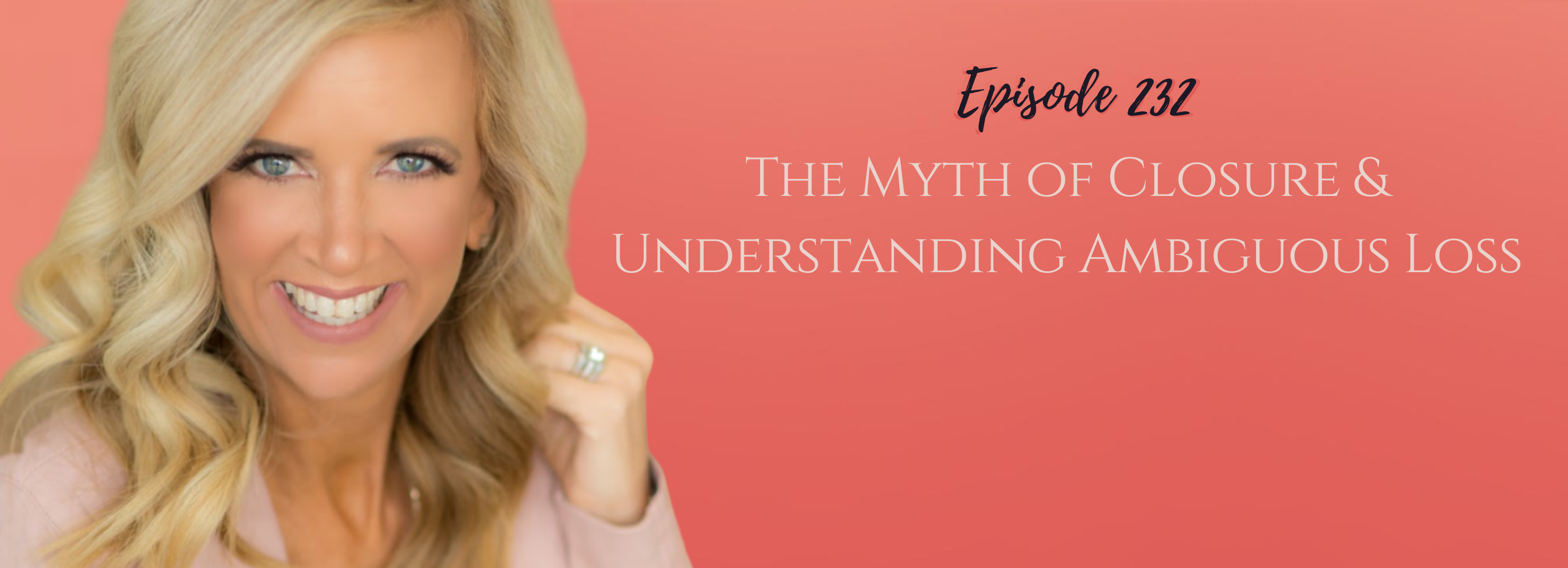
The Myth of Closure &
Understanding Ambiguous Loss
with Pauline Boss, PhD| 9.27.2023
In this episode, Kristen talks with Dr. Pauline Boss, an educator and author, to explore the concept of ambiguous loss and its profound impact on individuals and families. They discuss practical ways to deal with this kind of grief, drawing from Dr. Pauline's expertise. This conversation offers valuable insights for anyone facing the challenges of uncertain loss.
You'll Learn
- How ambiguous loss can impact individuals and families.
- Dr. Pauline's unique perspective as an educator and author, offering valuable insights into this complex topic.
- How to navigate the process of reconstructing your identity after a significant loss.
- The importance of discovering new hope and finding a sense of purpose amidst the challenges of loss.
Resources
For counseling services near Indianapolis, IN, visit www.pathwaystohealingcounseling.com.
Subscribe and Get a free 5-day journal at www.kristendboice.com/freeresources to begin closing the chapter on what doesn’t serve you and open the door to the real you.
This information is being provided to you for educational and informational purposes only. It is being provided to you to educate you about ideas on stress management and as a self-help tool for your own use. It is not psychotherapy/counseling in any form.